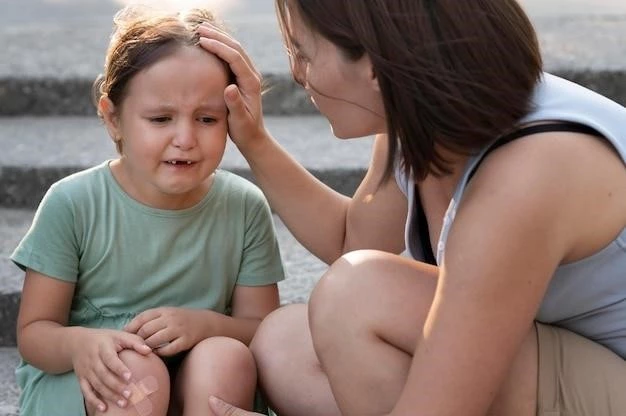Introduction
The Santos-Mateus-Leal Syndrome, also known as Hirschsprung’s disease-deafness-polydactyly syndrome, is a rare autosomal recessive limb malformation characterized by specific congenital abnormalities․
Overview of Santos-Mateus-Leal Syndrome
Santos-Mateus-Leal Syndrome, also known as Hirschsprung’s disease-deafness-polydactyly syndrome, is a very rare autosomal recessive limb malformation․ It is characterized by Hirschsprung’s disease, feet and hand polydactyly, unilateral renal agenesis, and congenital hearing loss․
This syndrome is a malformative association that presents with specific congenital abnormalities and is considered extremely rare, with unique clinical features such as polydactyly, renal agenesis, and hearing loss․ The syndrome has been the subject of ongoing research efforts to better understand its genetic basis and management․

Clinical Features
The Santos-Mateus-Leal Syndrome is a rare autosomal recessive limb malformation characterized by Hirschsprung’s disease, polydactyly in feet and hands, unilateral renal agenesis, and congenital hearing loss․
Santos-Mateus-Leal Syndrome is a very rare autosomal recessive limb malformation characterized by Hirschsprung’s disease, polydactyly in feet and hands, unilateral renal agenesis, and congenital hearing loss․ It is a unique malformative association with distinct clinical features that set it apart from other conditions․
Key Symptoms to Watch For
The Santos-Mateus-Leal Syndrome is characterized by key symptoms to watch for, including Hirschsprung’s disease, polydactyly in feet and hands, unilateral renal agenesis, and congenital hearing loss․ These symptoms serve as important indicators for the diagnosis and management of the syndrome․
Characteristics of Santos-Mateus-Leal Syndrome
Santos-Mateus-Leal Syndrome is a rare autosomal recessive limb malformation characterized by Hirschsprung’s disease, polydactyly in feet and hands, unilateral renal agenesis, and congenital hearing loss․ It is a unique malformative association with distinct clinical features that set it apart from other conditions․
Methods for Diagnosing Santos-Mateus-Leal Syndrome
Diagnosing Santos-Mateus-Leal Syndrome involves clinical evaluation of symptoms such as Hirschsprung’s disease, polydactyly, renal agenesis, and hearing loss․ Genetic testing plays a crucial role in confirming the diagnosis and identifying the underlying autosomal recessive genetic mutations responsible for the syndrome․
Genetic Testing and Counseling
Genetic testing is pivotal in diagnosing Santos-Mateus-Leal Syndrome, aiding in identifying the specific autosomal recessive genetic mutations․ Genetic counseling provides crucial information to families about the inheritance pattern, recurrence risks, and available management options based on the identified genetic mutations․

Treatment
Effective management of Santos-Mateus-Leal Syndrome involves a multidisciplinary approach addressing specific symptoms like Hirschsprung’s disease, polydactyly, renal agenesis, and hearing loss․ Therapeutic interventions are tailored to each individual’s needs․
Managing Santos-Mateus-Leal Syndrome
The management of Santos-Mateus-Leal Syndrome involves a comprehensive approach to address the specific symptoms associated with the condition․ These may include interventions for Hirschsprung’s disease, polydactyly, renal agenesis, and hearing loss․ Individualized care plans are essential to provide optimal support and improve the quality of life for individuals affected by this rare syndrome․
Therapeutic Interventions Available
Therapeutic interventions for Santos-Mateus-Leal Syndrome aim to address specific symptoms like Hirschsprung’s disease, polydactyly, renal agenesis, and hearing loss․ Treatment approaches are individualized to target each aspect of the condition effectively․
Prognosis
The outlook for individuals with Santos-Mateus-Leal Syndrome varies based on the severity of symptoms and individual response to treatments․ Understanding the potential complications associated with the syndrome is crucial for long-term management and care․
Outlook for Individuals with Santos-Mateus-Leal Syndrome
The prognosis for individuals with Santos-Mateus-Leal Syndrome varies depending on the severity of symptoms and the effectiveness of management strategies․ Understanding the potential complications associated with the syndrome is essential for providing appropriate care and support to enhance the quality of life for affected individuals․
Potential Complications to Be Aware Of
Complications associated with Santos-Mateus-Leal Syndrome may include issues related to Hirschsprung’s disease, polydactyly, renal agenesis, and congenital hearing loss․ Understanding these potential complications is essential for the comprehensive management and care of individuals with this rare syndrome․
Research and Studies
Recent studies on Santos-Mateus-Leal Syndrome have focused on understanding the genetic basis and developing effective management strategies․ Ongoing research efforts aim to improve diagnostics and therapeutic interventions for individuals affected by this rare condition․
Recent Findings on Santos-Mateus-Leal Syndrome
Recent studies have shed light on Santos-Mateus-Leal Syndrome, emphasizing its autosomal recessive nature and the distinct characteristics of Hirschsprung’s disease, polydactyly, renal agenesis, and congenital hearing loss․ Ongoing research aims to further enhance the understanding of this rare syndrome for improved diagnostics and targeted therapeutic approaches․
Ongoing Research Efforts
Continuous research efforts are dedicated to further understanding Santos-Mateus-Leal Syndrome, with a focus on its genetic basis, clinical manifestations, and potential treatment options․ These ongoing studies aim to enhance the knowledge and management strategies for this rare autosomal recessive limb malformation, ultimately improving outcomes for affected individuals․
Support and Resources
Organizations like the National Organization for Rare Disorders (NORD) provide valuable support and information for individuals and families affected by rare conditions like Santos-Mateus-Leal Syndrome․ Community support groups can offer further assistance and a sense of belonging․
Organizations Providing Assistance
Organizations such as the National Organization for Rare Disorders (NORD) offer vital support and resources for individuals and families impacted by rare conditions like Santos-Mateus-Leal Syndrome․ These organizations provide valuable information, advocacy, and guidance to enhance the quality of life for those affected by such complex disorders․
Community Support Groups
Community support groups play a crucial role in offering assistance, information, and a sense of community to individuals and families managing rare conditions like Santos-Mateus-Leal Syndrome․ These groups provide a platform for sharing experiences, offering emotional support, and navigating the challenges associated with the syndrome․
